Keywords: Gifts
There are more than 200 results, only the first 200 are displayed here.
-
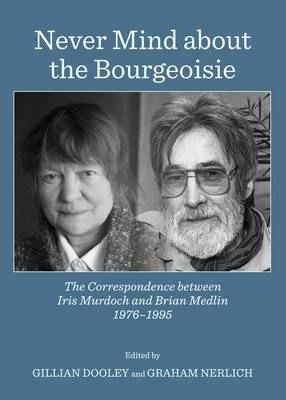
EDUCATION
- Brian Matthews
- 20 June 2014
4 Comments
On his own admission, Australian poet, essayist, philosopher, naturalist and storyteller Brian Medlin left the publication of his life's work to his last few years, but his passions, gifts and lyricism were set free in an extraordinary correspondence he conducted with British novelist Iris Murdoch. Their letters cover more than two decades and, with both writers terminally ill, are marked by love, wit, subtlety, argument and insight.
READ MORE 
-

AUSTRALIA
- Andrew Hamilton
- 16 June 2014
47 Comments
In the lead up to Refugee Week the attitudes of Australians to people who come by boat to seek protection made sober reading. 71 per cent of Australians believed Australia should turn back asylum seeker boats. That is far higher even than the Prime Minister's disapproval rating. Some might say that 71 per cent of Australians can't be wrong. At Eureka Street we have never been persuaded that majorities always have truth on their side.
READ MORE 
-
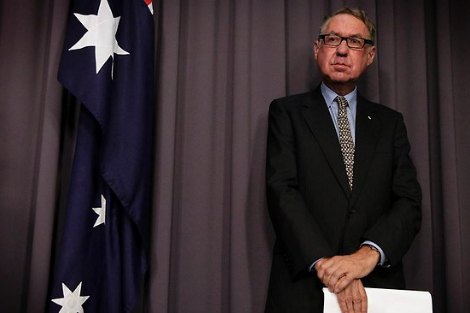
EDUCATION
- Dean Ashenden
- 28 May 2014
1 Comment
The Government doesn't want it. Shorten does. He can go to the next election with uncontested ownership of one of the most widely supported proposals of recent times. The problem with Gonski's plan, however, is that he wasn't allowed or able to propose solutions anywhere near as big as the problems his review uncovered. This presents Shorten with a tricky dilemma.
READ MORE 
-
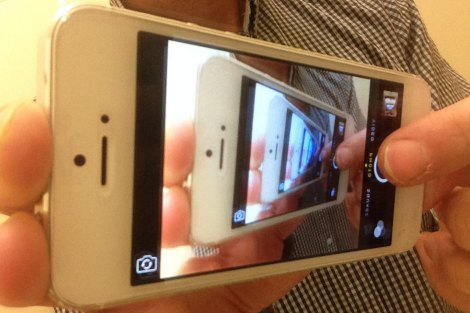
ARTS AND CULTURE
- Philip Salom
- 25 March 2014
1 Comment
Post-God voices of you complained: there were so many of you there were none. And, pre-God, there was less than one of you. That's a hard call. That's a stern said. Back off in the beginning colloids of an all-or-nothing exploded you. How scary are you? The Dough-maker's hand was poised, unseen in the shadows. Then in tactile, alarmingly, quarkily, scrolling and shaping you. A life-hand a touch. Retreating into the dark.
READ MORE 
-

INTERNATIONAL
My tutor in Kunming was deeply shaken by the mass stabbings last weekend that left 29 civilians dead. When Chinese authorities put out a request for blood donors in the city, giving blood was all she wanted to do. The city's blood banks have struggled to accommodate the throng of willing donors, the upturned arms of ordinary citizens replacing some of the blood spilt by the long knives. This strikes me as profoundly Eucharistic.
READ MORE 
-
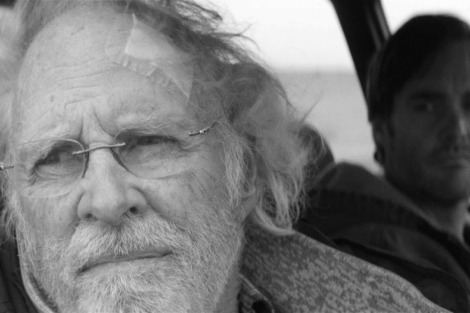
ARTS AND CULTURE
- Tim Kroenert
- 27 February 2014
2 Comments
Woody surely has dementia, which would explain his certainty that a sweepstakes flyer stating that he has won $1 million is authentic. While one son would prefer to put Woody in a home, the other, David, agrees to honour his wish to cross state lines to claim his fictitious winnings. Woody is aware of his own dwindling physical and mental agency, and understands that the small gifts of dignity afforded to him by David are not small at all.
READ MORE 
-
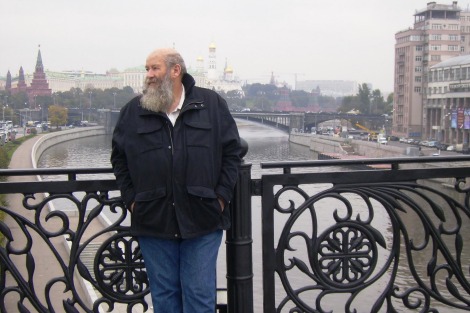
INTERNATIONAL
- Howard Willis
- 19 February 2014
6 Comments
On the occasions I got into detailed discussions with strangers in Moscow, a pattern emerged. Saying I was Australian prompted a polite request for clarification: 'But your ancestry?' The reply that I was fifth-generation Australian was treated as an evasion, or met with the assumption that my ancestors were 'bandits'. Generally, Muscovites took a second look at me and the box they ticked was 'Jew'.
READ MORE 
-

RELIGION
- Andrew Hamilton
- 06 January 2014
6 Comments
I indulge a passing self-congratulatory thought that the Pope is, like me, a Jesuit, and will understand our Jesuit ways. And that the Church, of course, will benefit immeasurably from his Jesuit training. That is immediately followed by a touch of anxiety: perhaps he will understand our ways all too well.
READ MORE 
-

AUSTRALIA
- Brian Matthews
- 08 November 2013
7 Comments
Within an hour the shop is humming with talk and movement. Mac is courteous, but has some iron rules. A woman who talks ceaselessly into her mobile phone receives a steely glare and silence. Someone with both ears plugged into his iPod finds Mac has also suddenly gone deaf. Each new arrival is threaded into a sort of endless conversation which functions at two levels — greetings to the customer and side-of-the-mouth asides to me.
READ MORE 
-
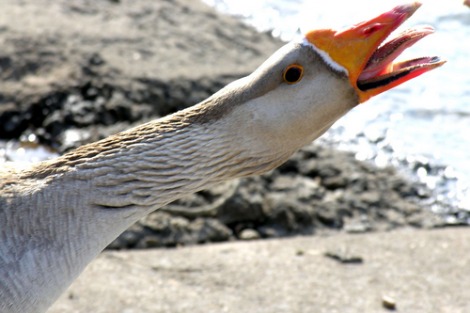
AUSTRALIA
- Andrew Hamilton
- 07 November 2013
23 Comments
Whenever public funds are made available for frowned upon projects they are described as taxpayers' money. When I hear the phrase roll from critics' lips, I imagine taxpayers as prune faced and laser lipped, or like children watching with beady eyes as their mother cuts the cake, ready to howl if their slice of the cake is the smaller half by a crumb or two. Underneath the phrase usually lies a view of life in which the market is a sacred site.
READ MORE 
-

EDUCATION
- Frank Brennan
- 18 October 2013
'My sixth piece of advice is for all graduates and not just those of you who are religious. We all need to develop a comprehensive worldview, nurturing the sense of the transcendent in the human spirit, and holding together in tension ideals and reality, dreams and our shortcomings.' Full text from Frank Brennan's La Trobe Graduation Address, Health Sciences, 18 October 2013.
READ MORE
-

AUSTRALIA
- Frank Brennan
- 13 August 2013
1 Comment
'Like many Australians, I had hoped that the dastardly plan announced on 19 July would stop the boats in the short term, as a stop-gap measure. It is dismaying to learn that appropriate consultations had not occurred with Indonesia with the result that the very people who were to receive the shock and awe message are yet to receive it. There’s only one thing worse than shock and awe; that’s shock and awe that doesn’t work because you haven’t done your homework.' 43rd Barry Marshall Memorial Lecture, Trinity College Theological School, 14 August 2013.
READ MORE